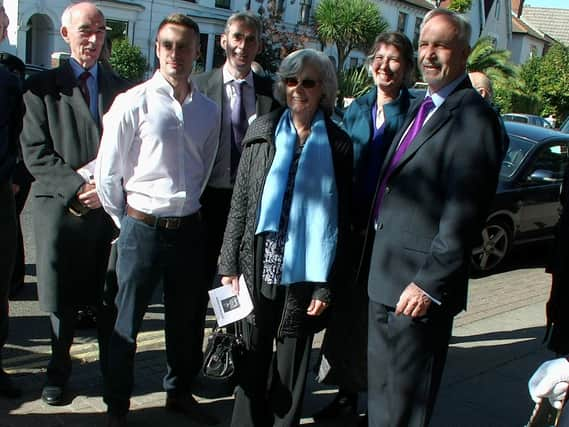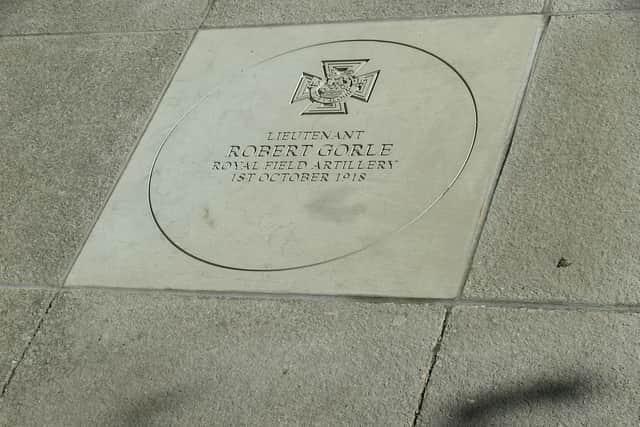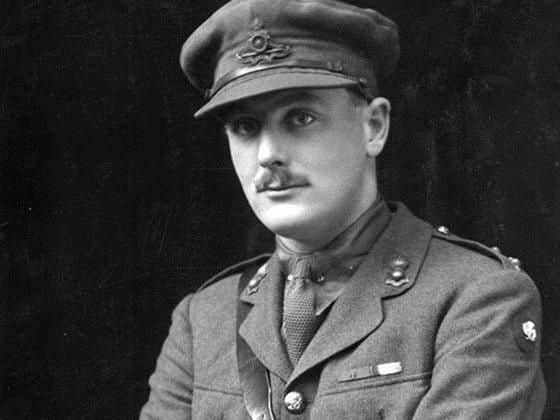Portsmouth pays tribute to First World War VC hero Â


Southsea-born Lieutenant Robert Gorle was presented with the Victoria Cross for his incredible feat of bravery during a battle in Belgium.
He was in charge of an 18-pounder gun during a battle at Ledeghem, Belgium, on October 1, 1918, when he risked his life to save his men.
Advertisement
Hide AdAdvertisement
Hide AdOn four separate occasions, the valiant 22-year-old officer brought his gun into action in the most exposed position to destroy enemy machine gun nests.


Later, when the infantry were driven back, he galloped his gun in front of the leading troops and twice knocked out enemy machine guns.
Now, 100 years on from his remarkable courage, Portsmouth has laid a paving stone on the corner of Victoria Road South and Merton Road in tribute to one of the city's bravest sons.
It was revealed during a service attended by dignitaries, veterans, soldiers and Lt Gorle's family.
Advertisement
Hide AdAdvertisement
Hide AdRoyal Navy veteran Chris Purcell, from Fratton, attended the service and was blown away by Lt Gorle's courage. He said: '˜It was true heroism. He was a very brave man and was serving Queen and country. He went above and beyond the level of duty to save his mates under his command.


'˜A Victoria Cross isn't given out to any Tom, Dick and Harry. He was a hero and it's right we remember him as such.'
A contingent of soldiers from 32 (Minden) Battery 16 Regiment Royal Artillery provided a guard of honour.
Major Rob Deane, battery commander, said his team was '˜honoured' to attend the memorial to Lt Gorle, adding: '˜His selfless example of courage under fire and disregard of his own life in the face of the enemy is an example to us all, despite occurring 100 years ago. The example set by Lieutenant Gorle is just as relevant today as it was then.'
Advertisement
Hide AdAdvertisement
Hide AdLt Gorle was born in Southsea, on March 6, 1896, Before the war, he was a farmer in South Africa.
His citation in the London Gazette described his heroism and said: '˜His disregard of personal safety and dash were a magnificent example to the wavering line, which rallied and re-took the northern end of the village.'
After the war he returned to South Africa, married, and had a family. He died in Durban in 1937.
His Victoria Cross is part of the Lord Ashcroft collection at the Imperial War Museum.